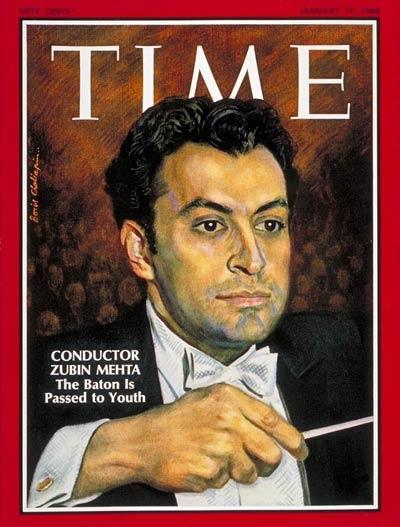One sure (but expensive) way of luring Zubin Mehta to London is to hire the Vienna Philharmonic, too. He and the orchestra go way back to a time when the Indian-born superstar’s smouldering good looks might have suggested Bollywood as a more likely destination than the Vienna Conservatoire. But only the most precociously gifted 20-something conductor offers up Bruckner’s 9th Symphony for his first recording with the illustrious Philharmonic. And quite a fist of it he made, too. I still return to it from time to time.
Forty-something years on there’s an air of luxurious well-being about Mehta and the Vienna Philharmonic. The watch he’ll be given for long service shall doubtless be a Rolex – the orchestra’s sponsor (how fitting is that) – and the music-making will probably continue along the lines of this the orchestra’s second Prom: that is, comfortable. What an uneventful evening it turned out to be. I hesitate to use the word bland because this orchestra can never be that. There are always little incidentals reminding you of their prowess and extraordinary heritage.
But even so, there was little here to challenge one’s perceptions or set one’s pulse racing. Even Webern’s fabulously overheated Passacaglia Op 1 sounded as though it had back-flipped from the Second Viennese School to the First. Its quivering distillations were as inviting as you’re ever likely to hear them, muted brass as sweetly enticing as solo violin. No dark night of the soul, this – no post-Mahlerian meltdown. The overwhelming sense that Mehta and the orchestra had played the piece so many times that they could now switch over to automatic pilot took much of the intrigue out of it.
And so it continued. Part of the problem with Strauss’ Don Quixote was that in this performance the Sancho Panza – the VPO’s principal viola Christian Frohn – was a more assertive, robust, presence than the Don himself. Tamas Varga, principal cello with the orchestra, played beautifully, for sure – this was a philosophical Don, quiet and ruminative. But none of the visionary madness revealed (albeit rather prosaically) in the orchestral introduction of the piece was even so much as hinted at. No likelihood of this Don tilting at windmills. Indeed the whole performance felt under-characterised with only the Don’s final musings and expiration - on a long tremulous glissando – bringing any real sense of wonder and pathos.
Brahms’ mighty Fourth Symphony was a sedentary experience. The Vienna strings sang to the manner born with gorgeous horn doublings giving the sound the sheen of something exquisitely gift-wrapped; and there were distinguished contributions as ever from the Philharmonic’s velvety clarinets. But Mehta coasted complacently, enjoying the noise the piece made rather than the feelings it might potentially invoke. The screwing up of tension came far too late in the first movement development to achieve a truly searing pay-off and the famously athletic scherzo was more than a little out of shape. The whole performance lacked rigour and tension and gravitas. Mehta and the VPO have gotten too cosy in their maturity.
But maybe everything had been geared towards the Viennese candyfloss of the encores – they seemed to be what the audience had come for and generated more energy than pretty much everything else on the programme. Josef Hellmesberger’s Light-Footed Polka was dedicated to the Promenaders. Light-headed might better have described the evening.













Add comment